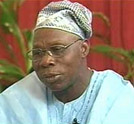


I am currently reading a book titled Fashioning Africa:Power and the Politics of Dress which is edited by Jean Allman. Thanks to my friend Scout of Harper Valley for recommending to me this book through sending me one of the essays. The book is fascinating. It is like reading the history again, in different perspective. The book revisits some historical facts and histories using “fashion”. The book tries to draw a clear close connection between the clothes we wear and our political expression. The book bases on facts that to date, few scholars have explored what clothing means in 20th-century Africa and the Diaspora.
The book is a collection of essays from an international group of anthropologists, historians, and art historians who bring rich and diverse perspectives to this fascinating topic. From clothing as an expression of freedom in early colonial Zanzibar to Somali women's head covering in inner-city Minneapolis. These essays explore the power of dress in African and pan-African settings. Nationalist and diasporic identities, as well as their histories and politics, are examined at the level of what is put on the body every day.
Above are pictures of three African leaders. On the left is Nigerian President, Oleusegun Obasanjo, on the middle is my Tanzanian president,Jakaya Mrisho Kikwete and on the right is King Mswati III of the kingdom of Swaziland. Now with reflection of connection that you think our clothing styles have with our political,social and even economical stances, do you see anything in common or out of common in these leaders? What can you say about cultural issues by looking at the pictures?
2 comments:
geeze you can post some tough, mind devling questions jeff :)
aesthetically i go for the king's look...love tribal to the 't'. but it all poses questions of the nation and the world stage, doesn't it? certainly when matters of trade and economics are concerend, unfortunetly i think western society responds better to a suit. the people, of course, probably respond better to someone like the nigerian president.
does this mean there's a time and a place for various dress styles? the world would respond best to human rights issues with the king and mr. nigeria. is that right...i don't know if there's a 'right', it's just how people react.
however, this in mind, most nativ indians will not wear traditional dress unless it's for ceremony or ritual.....the public reaction to traditional dress can thwart the idea of progressiveness and instill factors such as 'oh , those poor indians', which is not what is wanted.
now, if you can tell me how the three fair in the world and their own nations, it would be an intersting tell-tale.
no matter what they wear tunachotaka kutoka kwao viongozi wetu wa kiafrika ni uongozi safi na makini wenye manufaa kwa kila mwafrika anaeongozwa nao. hata wakivaa majani au manyoya ya ndege kama mababu zetu, halafu wakaendelea kutoweka mbele maslahi ya bara letu hawatakuwa na msaada kwetu.
Post a Comment